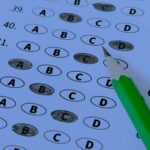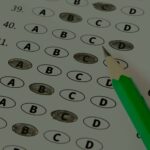Your voice matters! Attend a virtual or in-person session to share your thoughts on school facilities. ➔ Find a session near you

In the 2021-22 school year, the School District of Philadelphia (SDP) created a fully virtual Quarantine School for SDP students who needed to quarantine at home due to the Covid-19 pandemic. This report summarizes 2021-22 Quarantine School attendance, describes what took place in the Quarantine School virtual classrooms, and examines feedback from students, parents, and teachers about their experiences with Quarantine School.

The School District of Philadelphia’s Board of Education’s Goal 4 is focused on improving the reading and math performance of grades 9-11 students on the Keystones. To track progress toward the Goal, the District examines the performance of students on “Leading Indicators,” the within-year assessments of reading and math skills administered multiple times between the annual Keystone exams. This report examines the statistical relationship of Winter and Spring Star performance and Keystone performance in 2021-22.

The Pennsylvania Department of Education (PDE) provides grant funding to eight regions in Pennsylvania to serve students experiencing homelessness through the Education for Children and Youth Experiencing Homelessness (ECYEH) program. This brief provides information about progress toward the goals of the ECYEH grant program and priorities of SDP staff.

This brief explores 2022-23 Philadelphia public school enrollment patterns at District, Alternative, Philadelphia Charter, and Cyber Charter schools, including by school admission type and student demographics, as well as changes in those patterns since 2014-15.

This research brief highlights the changes in the percentage of students scoring in the Proficient or Advanced performance groups on the PSSA exams from 2019 (pre-Covid) to 2022 (post-Covid) in Pennsylvania school districts.

Each year, SDP and its partner organizations offer a variety of summer programs to ensure that students, especially those most vulnerable to experiencing summer learning loss, have the opportunity to continue learning during the summer months. This report provides a summary of the 2022 summer programs, including information about enrollment and attendance, and findings from surveys and observations.

On June 16, 2022, Dr. Tony Watlington became the new superintendent of the School District of Philadelphia (SDP) and started his tenure by outlining a three-phase plan that would facilitate his transition into the role. Phase 1 of the plan covered his first 100 days as SDP superintendent and was focused on conducting a “Listening and Learning Tour” across Philadelphia. The Office of Evaluation, Research, and Accountability (ERA) analyzed the data and published a condensed summary and an expanded slide deck.

The 2021-22 school year was the first year that the PSSAs and Keystones were administered normally since 2018-19 (pre-pandemic). In late November, PDE published the results of the state standardized tests administered in the 2021-22 school year.

The 2021-22 school year was the first year that the PSSAs and Keystones were administered normally since 2018-19 (pre-pandemic). These briefs describe District-wide performance trends on the PSSAs and the Keystone exams from 2014-15 to 2021-22.

The Pennsylvania Department of Education requires each district to survey exiting seniors about their intentions after high school—specifically, whether students plan to obtain additional education, secure employment, or pursue other activities. This graduate follow-up survey asked Career and Technical Education (CTE) students from the class of 2021 about their experiences after graduation.